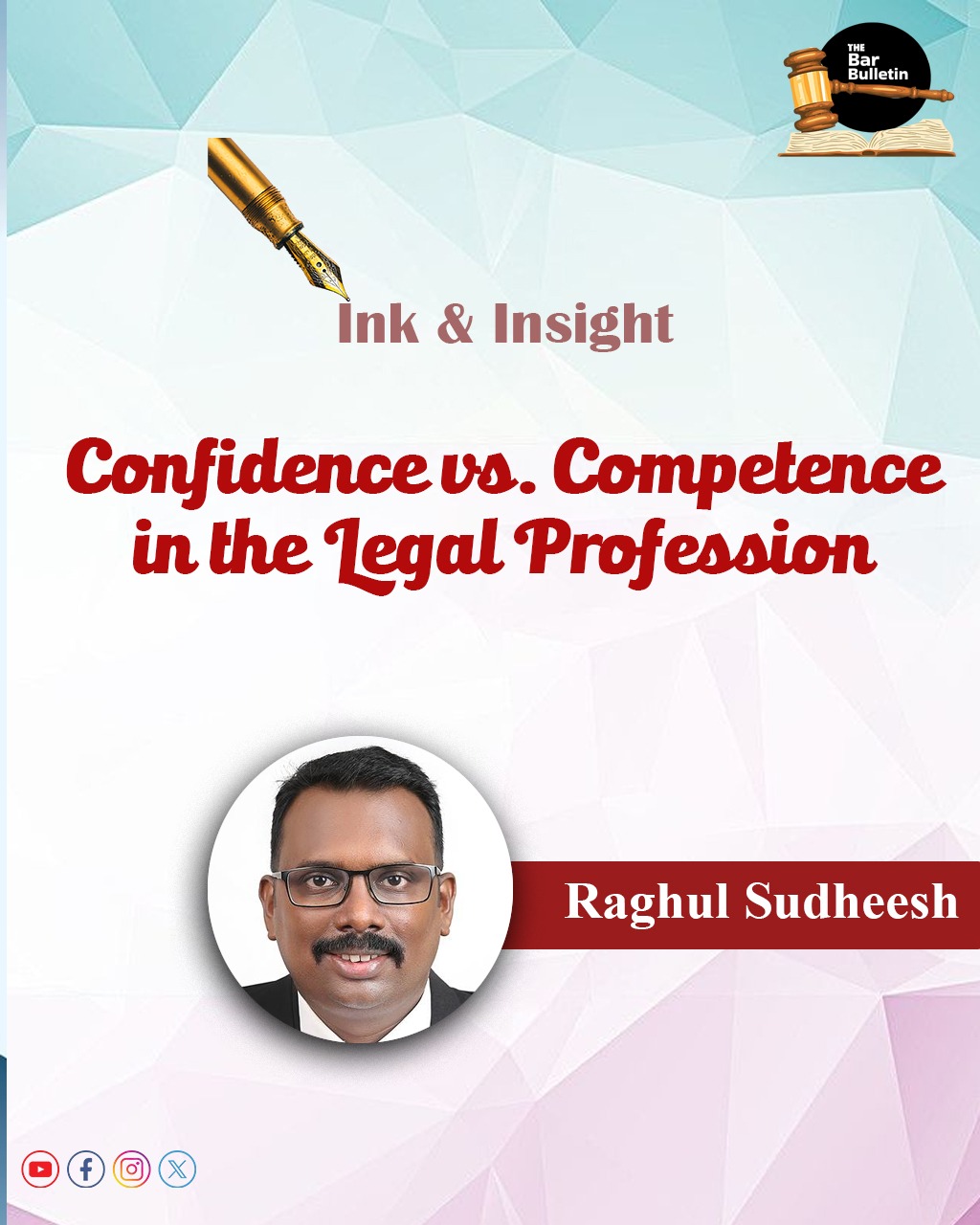Not long ago, I walked into a Timex exclusive store to explore their range of mechanical watches. I picked up a piece and asked the salesperson whether it used a Miyota movement. For context, Miyota—part of the Citizen group—is a well-regarded manufacturer of mechanical movements, and many brands, including Timex, often use it in their watches.
The salesperson, however, looked at me and replied, “Sir, this is a Timex store. We only sell Timex products.” It was immediately clear that he had no idea what a Miyota movement was. I eventually had to ask him to take the watch out of the case, point to the movement visible through the open case back, and explain to him what it meant.
That moment reminded me of a pattern I often see in the legal profession. Just like that salesperson, some junior lawyers enter the field full of confidence but without the depth of knowledge needed to truly understand their craft.
I often come across two kinds of junior lawyers. The first are those who are genuinely knowledgeable, humble, and deeply passionate about the law. The second are those who carry a great deal of hype, possess very little knowledge, but display immense confidence—even when they have no real understanding of the subject or case before them.
These two archetypes are classic examples of well-known psychological phenomena. The humble but capable young lawyer often struggles with Imposter Syndrome—a nagging sense that they are not good enough, despite being exceptionally skilled. On the other hand, the overconfident but underprepared lawyer exemplifies the Dunning–Kruger effect—where a lack of competence leads to an inflated sense of self-belief.
Unfortunately, many recent graduates fall prey to the Dunning–Kruger effect. And it isn’t always their fault. At the beginning of one’s learning journey, knowledge itself gives a false sense of mastery. That early “faux-confidence” can be dangerous: some realize this only after making costly mistakes, while others go on practicing with that misplaced confidence, putting clients and causes at risk.
Imposter Syndrome, however, is often misunderstood as a weakness. In my view, it is actually a superpower. When someone doubts their own abilities, they tend to over-prepare, remain humble, and work tirelessly to improve. Over time, this very mindset becomes a self-fulfilling prophecy for success. Interestingly, those with Imposter Syndrome may never truly feel confident in their own work—but that constant humility and vigilance is what shapes them into outstanding lawyers.
The truly knowledgeable juniors—the “imposters”—are often the real pillars of support for their Seniors. Yet, paradoxically, they tend to doubt themselves and hesitate to step out on their own, preferring the comfort of working under a Senior. I always encourage such lawyers to break free of this comfort zone and pursue independent practice.
On the other hand, those brimming with misplaced confidence often leap into independence immediately after graduation—or after a very short stint with a Senior. They take up cases without adequate preparation and frequently mishandle them, leaving the client’s interests at risk. More often than not, these cases later require rescue by a competent lawyer. Such missteps not only damage the client’s cause but also tarnish the reputation of the legal profession and erode public trust in the system.
Of course, there is no statutory bar on starting an independent practice straight out of college. But equally, no lawyer should allow their inefficiency or inexperience to cause harm to another person or their case. In fact, I have found that some paralegals working with me—still in law school—are better equipped than fresh graduates. I can confidently hand over a file to a capable paralegal and receive a flawless draft within hours, something a newly minted associate without meaningful internship experience may struggle to produce. Such well-trained paralegals could easily begin independent practice immediately after graduation, and I would have no hesitation in entrusting work to them.
The problem, at least in Kerala, lies largely in the quality of internships. Except for one or two premier law schools, internships are often superficial. Many law students end up doing everything but legal work—clerical tasks in Panchayat offices, errands at Police Stations, Excise offices, or NGOs. To make matters worse, MG University even restricts students from doing more than two internships with Advocates, a rule that is currently under challenge before the Kerala High Court (Aswin R. v. Bar Council of India & Ors. – https://thebarbulletin.com/kerala-high-court-admits-law-students-plea-against-internship-cap-seeks-response-from-bci-university-and-college/ ).
I am not opposed to anyone setting up an independent practice—on the contrary, I have consistently encouraged it, as I wrote earlier here (https://www.barandbench.com/columns/litigation-columns/establishing-an-independent-law-practice-a-guide-for-young-lawyers). But one must be cautious: when stepping into independent practice, we should ensure that we are competent to handle the matters entrusted to us and remain truthful in our conduct—both before the Court and with our peers at the Bar.
The legal profession is unlike any other. It is not simply a means of livelihood; it is a trust reposed in us by society. Every mistake echoes far beyond the file—it can destroy a person’s liberty, cripple a family, or crush a cause. That is why professional standards are not optional; they are the lifeblood of our calling.
To the young lawyer, my message is this: do not mistake confidence for competence. Do not trade integrity for shortcuts. Do not let inexperience become another person’s misfortune. Build your practice with patience, discipline, and honesty. For when we lower our standards, we don’t just fail a client—we fail the system itself.
And to those who are genuinely knowledgeable—yes, the ones battling Imposter Syndrome: take the leap and begin your independent practice. Trust the process—opportunities will align in ways you may not anticipate. As Justice N. Anand Venkatesh of the Madras High Court once remarked, “an office will form around you without you even realizing it.”
*Advocate, High Court of Kerala


One thought on “Confidence vs. Competence in the Legal Profession”
Great insight! True strength lies in humility and honest self-awareness, not false confidence. A much-needed reminder for young lawyers to prioritize competence and integrity